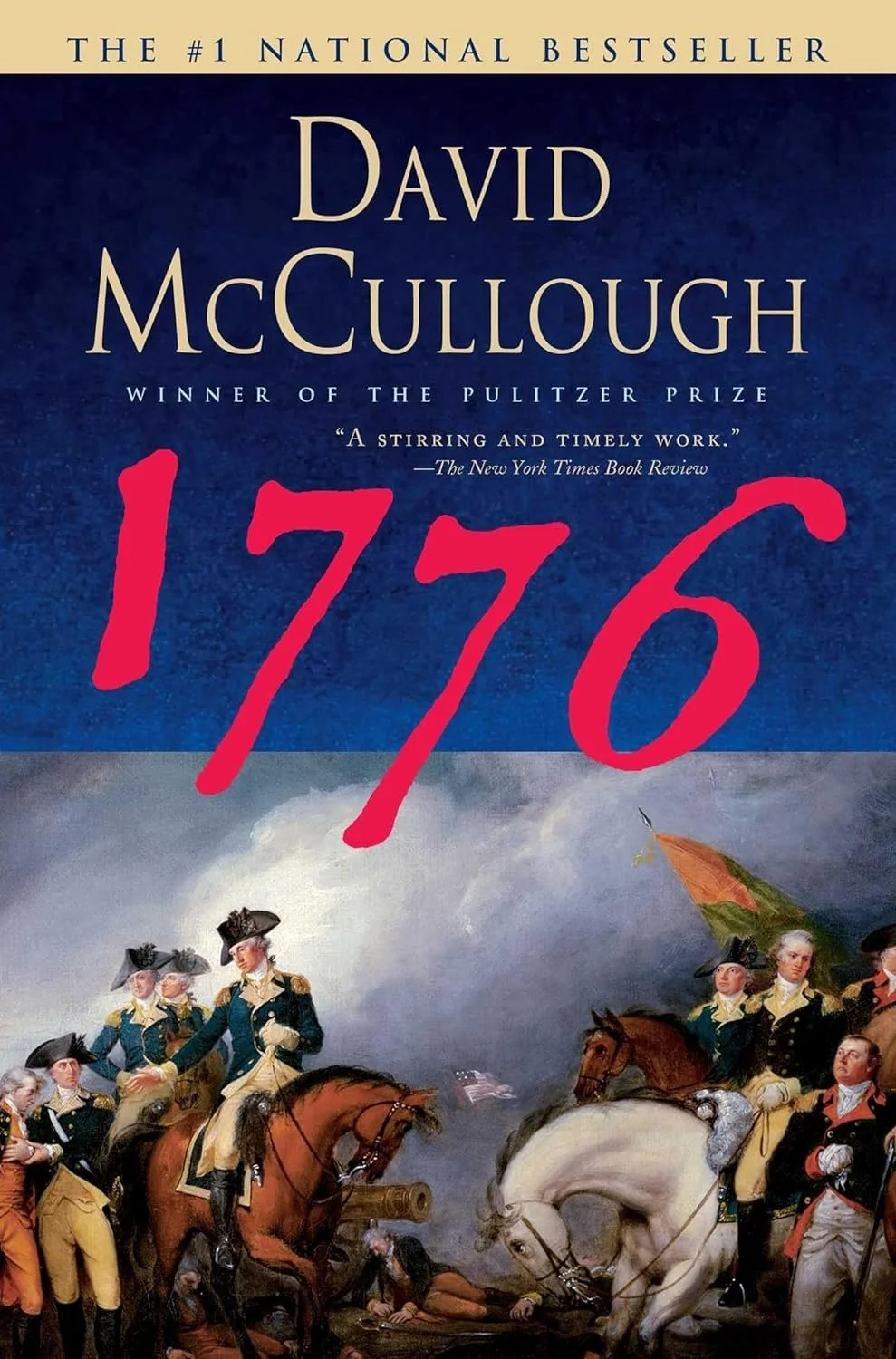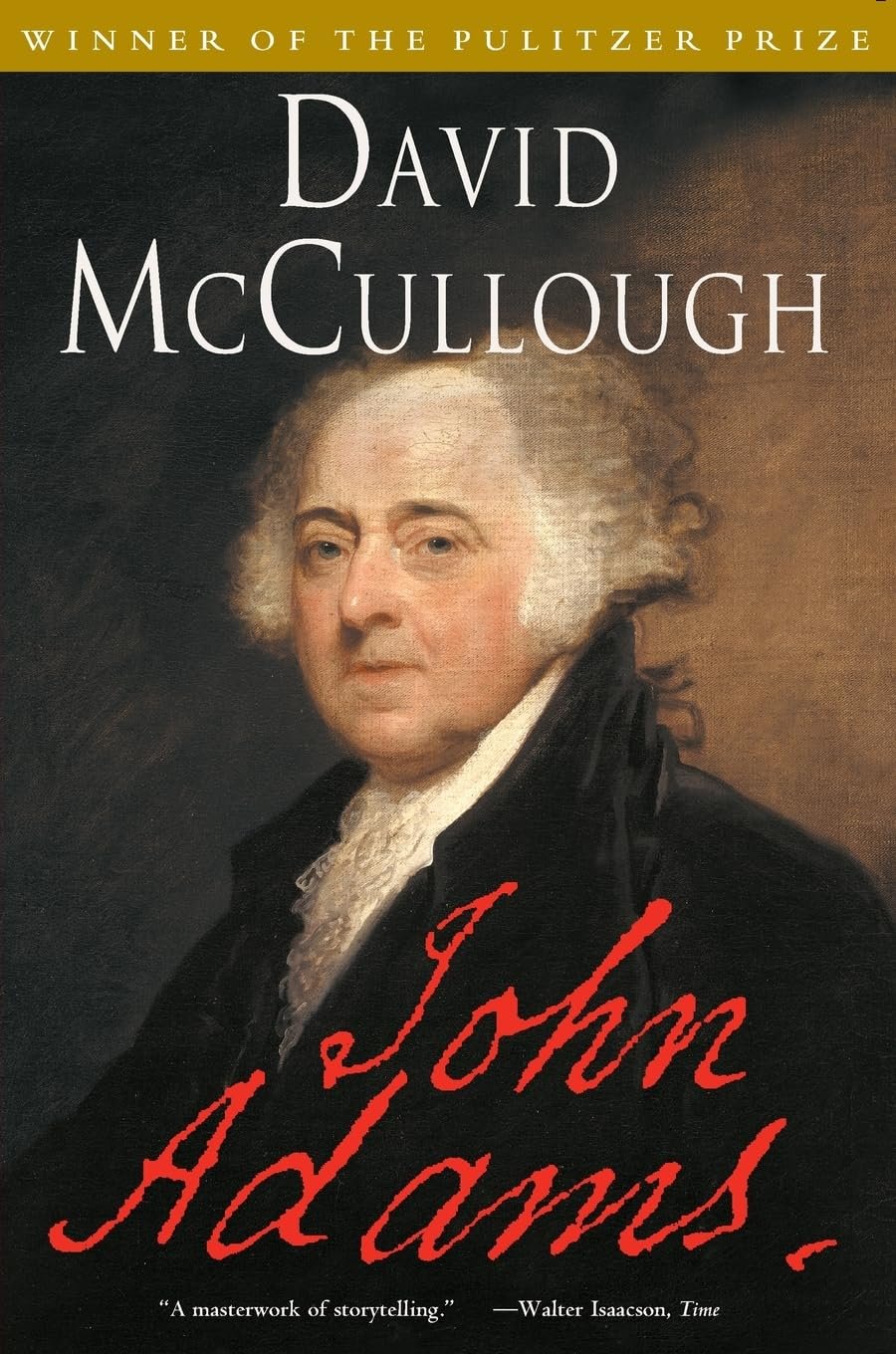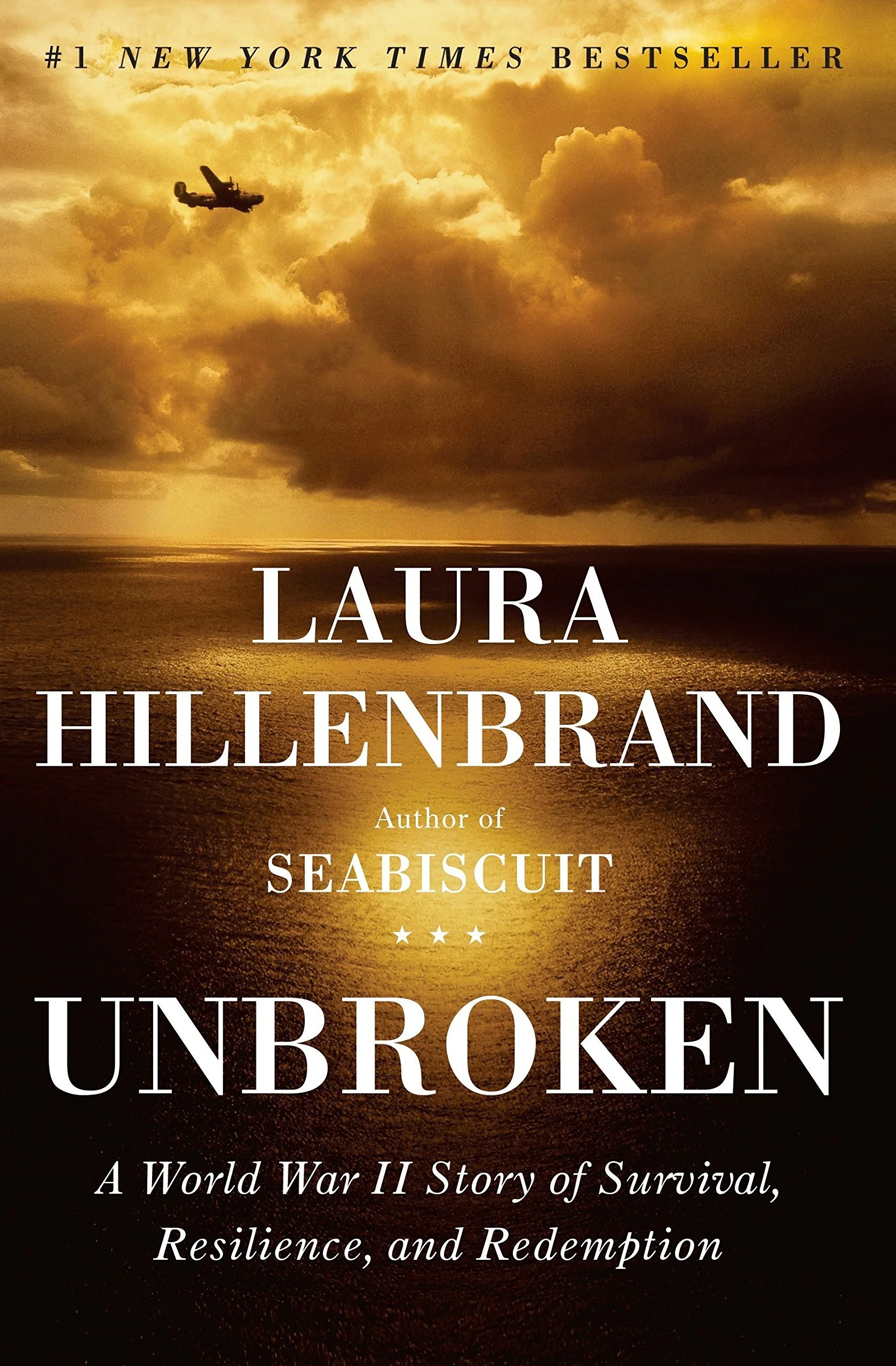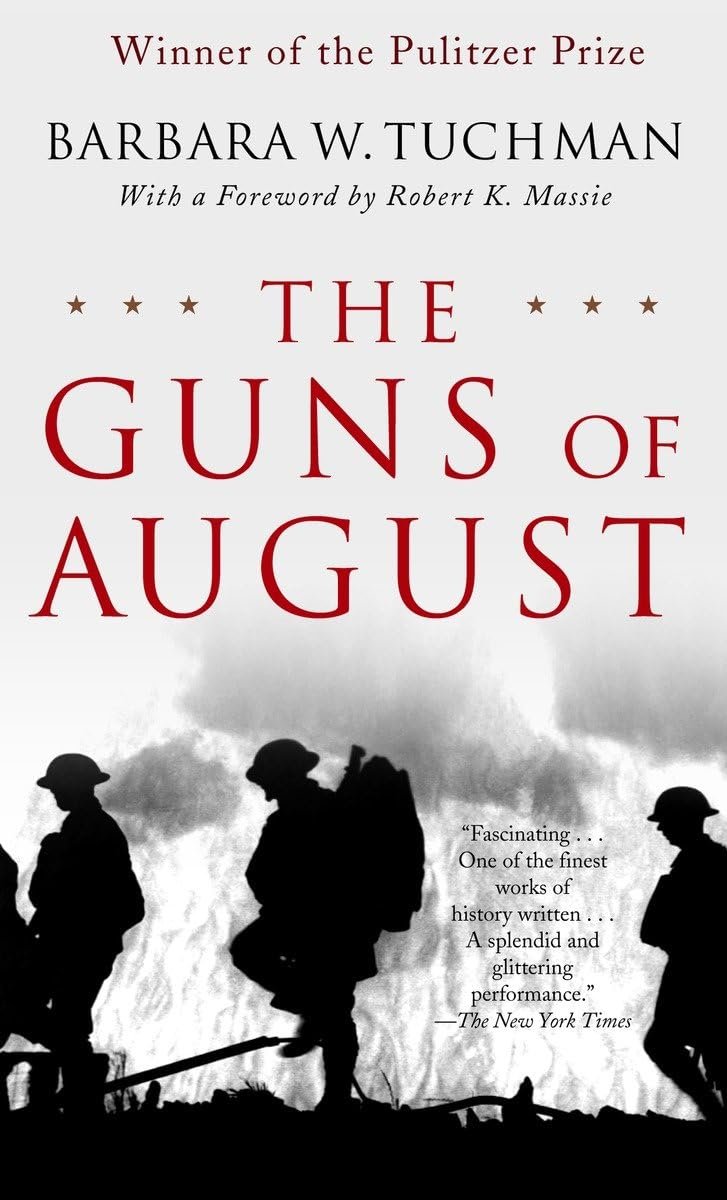Best Books About History
Best Books About History
I want to note that I do not get paid to do these posts, I just love authors and the book industry. However, they do take time and energy to create. If you want to donate a few dollars to my coffee fund, which keeps this blog going, you can do so here: https://venmo.com/AshleyHasty or here: http://paypal.me/hastybooklist.
Books have long been revered as one of the most powerful tools for education, information, and entertainment. They offer a unique avenue to explore new ideas, understand different cultures, and delve into the complexities of human experience. Reading books from various genres can significantly broaden one's perspective, enriching our understanding of the world and sparking creativity in ways few other mediums can match.
Diving into different genres allows readers to experience the full spectrum of human thought and imagination. Fiction transports us to different worlds, fostering empathy by allowing us to live vicariously through diverse characters. Non-fiction provides factual insights and deep dives into specific topics, while poetry captures the essence of emotions in a few carefully chosen words. Each genre offers its own unique benefits, contributing to a well-rounded and enriched mind.
History books, in particular, hold a special place among these genres. They are treasure troves of knowledge, providing detailed accounts of events that have shaped our world. They offer context for the present and insights into the future by revealing patterns and lessons from the past. However, many readers find history books to be dense and tedious, filled with dry facts and dates that can make reading a chore rather than a pleasure.
Despite this common perception, there are history books that captivate and engage, transforming the reading experience into an exciting journey through time. These books bring history to life with compelling narratives, vivid descriptions, and relatable characters. They weave stories that are as entertaining as they are educational, proving that learning about the past doesn't have to be a dull endeavor.
Today, I’m sharing a round-up of some of the best history books that will catch your attention instantly. These books are not only informative but also engaging, offering a fresh and exciting perspective on historical events. Whether you are a history buff or a casual reader looking to expand your knowledge, these selections promise to entertain and enlighten.
What Makes a Great History Book?
A great history book is much more than a collection of dates and events; it is a vivid tapestry that weaves together narratives, personalities, and contexts to bring the past to life. The finest history books transform historical facts into compelling stories, making them accessible and engaging for readers of all backgrounds. But what exactly makes a history book stand out? Here are a few key elements:
Compelling Narrative: A great history book reads like a novel, with a well-paced narrative that keeps readers hooked. The author’s ability to tell a story that is both informative and engaging is crucial. This means balancing factual accuracy with storytelling techniques that draw readers in.
Thorough Research: The foundation of any credible history book is rigorous research. Authors must dive deep into primary and secondary sources, ensuring their work is based on solid evidence. This meticulous approach adds authenticity and depth to the narrative.
Relatable Characters: History books that focus on the people behind the events often resonate most with readers. By delving into the lives, motivations, and emotions of historical figures, authors can create a connection between the past and the present.
Context and Analysis: Great history books do more than recount events; they provide context and analysis that help readers understand why events unfolded as they did and what their broader implications were. This deeper insight allows readers to grasp the complexities of historical events and their impact on the present.
Visual Elements: Maps, photographs, and illustrations can greatly enhance a history book, providing visual context that complements the text. These elements help readers visualize the settings and people, making the historical narrative more tangible.
What Readers Can Expect from History Books
History books offer a window into the past, allowing readers to explore different eras, cultures, and events. Here’s what readers can generally expect from a well-crafted history book:
A Journey Through Time: History books transport readers to different periods, providing a sense of immersion in the lives and experiences of people from the past. Whether it’s ancient civilizations or modern history, these books offer a detailed exploration of specific times and places.
Learning and Discovery: Readers can expect to gain a wealth of knowledge from history books. They provide detailed accounts of events, uncover lesser-known facts, and challenge existing perceptions, offering a rich learning experience.
Contextual Understanding: A good history book places events in a broader context, helping readers understand the causes and consequences of historical developments. This contextualization aids in grasping the interconnectedness of historical events and their relevance to the present.
Inspiration and Reflection: History books often inspire readers by highlighting human resilience, innovation, and courage. They also provide opportunities for reflection, encouraging readers to consider how the lessons of the past can be applied to contemporary issues.
Engaging Storytelling: While history books are informative, the best ones also entertain. Readers can expect engaging prose, intriguing anecdotes, and a narrative that keeps them turning the pages.
In summary, a great history book is a blend of thorough research, compelling storytelling, and insightful analysis. It not only educates but also engages and inspires readers, making the past come alive in a way that is both informative and entertaining. As we delve into a selection of some of the most captivating history books, prepare to be transported on a fascinating journey through time, discovering the stories and events that have shaped our world.
Why Is History Important?
History is more than a record of dates and events; it is the story of humanity. Understanding history is crucial because it helps us make sense of the present and shape a better future. Here are some compelling reasons why history is important and how reading books about history can be beneficial:
Learning Lessons from the Past: History provides countless lessons that can guide our actions today. By studying past successes and failures, we can understand what strategies worked, what led to downfalls, and how complex problems were navigated. This knowledge can help us make more informed decisions and avoid repeating past mistakes.
Understanding Current Events: Many contemporary issues have deep historical roots. Reading history books allows us to see the connections between past and present, providing a more comprehensive understanding of current events. This context is essential for grasping the complexities of today's world and developing informed opinions.
Cultural Awareness and Empathy: History books expose us to different cultures, traditions, and perspectives. This exposure fosters empathy and cultural awareness, helping us appreciate diversity and understand the experiences of others. Such understanding is vital in our increasingly interconnected world.
Critical Thinking Skills: Engaging with history requires analyzing various sources, understanding different viewpoints, and assessing evidence. This process develops critical thinking skills, encouraging readers to question assumptions, evaluate information critically, and think independently.
Inspiration and Motivation: History is filled with stories of resilience, innovation, and bravery. Reading about individuals who overcame great odds or societies that achieved remarkable progress can be inspiring. These stories can motivate us to pursue our goals with determination and creativity.
Shaping Identity and Values: History helps us understand who we are and where we come from. It shapes our collective identity and values by connecting us to our ancestors and their experiences. This understanding can foster a sense of belonging and pride in our heritage.
Avoiding Mistakes: One of the most valuable aspects of studying history is learning from the mistakes of the past. Whether it's the causes of wars, the collapse of economies, or the rise and fall of civilizations, history provides examples of what to avoid. By understanding these mistakes, we can strive to create a more stable and just society.
Building a Better Future: History is not just about the past; it's a guide for the future. By applying historical lessons, we can address contemporary challenges more effectively. Understanding historical trends and patterns can also help us anticipate future developments and prepare for them proactively.
How Reading History Books Can Benefit You
Reading history books is a powerful way to reap the benefits of understanding history. Here’s how:
Gaining Perspective: History books offer detailed insights into different eras and cultures, broadening your perspective and helping you see the world through various lenses.
Enhancing Knowledge: With well-researched history books, you gain accurate and comprehensive knowledge about significant events, influential figures, and pivotal moments in history.
Developing Analytical Skills: Engaging with historical analysis sharpens your ability to assess evidence, understand causation, and recognize bias, which are valuable skills in any field.
Fostering Curiosity: The rich narratives and intriguing details found in history books can spark curiosity and a lifelong love of learning.
Improving Empathy: By reading about the experiences of people from different times and places, you develop a deeper empathy and understanding of human experiences.
In summary, history is vital because it teaches us about our past, informs our present, and guides our future. Reading historical nonfiction books allows us to learn from past lessons, avoid previous mistakes, and work towards creating a better life for ourselves and future generations. As you explore history through books, you’ll find that the past is not just a distant memory but a powerful tool for navigating the present and building a brighter future. For more great books about history, check out this list of top historical fiction books or this book on extraordinary women in history.
Best History Books
Best American History Books
"1776" by David McCullough
Overview: This book offers a compelling narrative of the year 1776, focusing on the events surrounding the Declaration of Independence and the early battles of the American Revolution.
What to Expect: Readers can expect a detailed, vivid account of key figures like George Washington and a gripping portrayal of the struggles faced by the Continental Army.
Uniqueness: McCullough's narrative style makes history come alive, providing both drama and a deep understanding of the era.
Engagement: The storytelling is engaging, making it accessible to both history buffs and casual readers.
"Team of Rivals: The Political Genius of Abraham Lincoln" by Doris Kearns Goodwin
Overview: This book explores Abraham Lincoln's leadership through the lens of his relationship with his cabinet members, who were also his political rivals.
What to Expect: Insight into Lincoln's unique leadership style, his political acumen, and his ability to unify a divided nation.
Uniqueness: The focus on Lincoln's interpersonal skills and political strategies offers a fresh perspective on his presidency.
Engagement: Goodwin's detailed research and engaging prose make it a captivating read.
"The Wright Brothers" by David McCullough
Overview: The story of Wilbur and Orville Wright, who invented and flew the first successful airplane.
What to Expect: An inspiring narrative of innovation, perseverance, and the quest for flight.
Uniqueness: McCullough's portrayal of the brothers' personalities and their journey from obscurity to fame.
Engagement: The book's accessible style and fascinating subject matter make it highly engaging.
"The Warmth of Other Suns: The Epic Story of America's Great Migration" by Isabel Wilkerson
Overview: This book chronicles the migration of African Americans from the rural South to the urban North and West between 1915 and 1970.
What to Expect: Personal stories of migration, struggle, and triumph, set against the backdrop of significant social changes in America.
Uniqueness: The use of individual narratives to illustrate a broader historical movement.
Engagement: Wilkerson's compelling storytelling and thorough research make it an engaging and enlightening read.
"John Adams" by David McCullough
Overview: A biography of John Adams, the second President of the United States.
What to Expect: An intimate portrait of Adams's life, his role in the founding of America, and his relationships with key figures like Thomas Jefferson.
Uniqueness: McCullough's ability to humanize Adams and provide a detailed look at his personal and political life.
Engagement: The book's narrative style and rich detail make it a captivating biography.
"Empire of the Summer Moon" by S.C. Gwynne
Overview: The rise and fall of the Comanche Empire and the story of Quanah Parker, the last Comanche chief.
What to Expect: A dramatic tale of conflict, survival, and cultural clash on the American frontier.
Uniqueness: The focus on the Comanche perspective and the detailed account of their history.
Engagement: Gwynne's engaging writing and the epic scope of the story make it a riveting read.
"Unbroken: A World War II Story of Survival, Resilience, and Redemption" by Laura Hillenbrand
Overview: The true story of Louis Zamperini, an Olympic athlete and WWII bombardier who survived being shot down, drifting at sea, and imprisonment in a Japanese POW camp.
What to Expect: A harrowing and inspiring tale of endurance and resilience.
Uniqueness: Hillenbrand's meticulous research and vivid storytelling bring Zamperini's incredible journey to life.
Engagement: The gripping narrative and powerful themes make it a highly engaging read.
"The Immortal Life of Henrietta Lacks" by Rebecca Skloot
Also appeared on my list of Must-Read Books For Every Woman
Overview: The story of Henrietta Lacks, whose cells were taken without her knowledge and used for scientific breakthroughs.
What to Expect: A blend of scientific discovery, ethical issues, and personal narrative.
Uniqueness: The focus on the intersection of medical science and human rights.
Engagement: Skloot's accessible writing and the compelling story make it an engrossing read.
"The Underground Railroad" by Colson Whitehead
Overview: A novel that reimagines the Underground Railroad as a literal underground train system used by escaping slaves.
What to Expect: A mix of historical fiction and magical realism that explores the horrors of slavery and the quest for freedom.
Uniqueness: The innovative approach to historical events through a fictional lens.
Engagement: Whitehead's powerful prose and imaginative storytelling keep readers deeply engaged.
"Killing Lincoln: The Shocking Assassination that Changed America Forever" by Bill O'Reilly and Martin Dugard
Overview: A detailed account of the assassination of President Abraham Lincoln.
What to Expect: A fast-paced narrative that covers the events leading up to and following Lincoln's assassination.
Uniqueness: The book's focus on the dramatic and suspenseful aspects of the historical event.
Engagement: The thriller-like presentation makes it a highly engaging read.
Best World History Books
"Sapiens: A Brief History of Humankind" by Yuval Noah Harari
Overview: An exploration of the history of the human species, from the emergence of Homo sapiens to the present.
What to Expect: Insights into the cognitive, agricultural, and scientific revolutions that have shaped human history.
Uniqueness: Harari's ability to synthesize vast amounts of information into a coherent and engaging narrative.
Engagement: The accessible writing style and thought-provoking insights make it a captivating read.
"Guns, Germs, and Steel: The Fates of Human Societies" by Jared Diamond
Overview: An analysis of the factors that have influenced the development of human societies, focusing on environmental and geographical determinants.
What to Expect: A multidisciplinary approach to understanding historical development.
Uniqueness: Diamond's integration of geography, biology, and history to explain societal differences.
Engagement: The comprehensive and insightful narrative keeps readers engaged.
"The Silk Roads: A New History of the World" by Peter Frankopan
Overview: A history of the world from the perspective of the Silk Roads, the ancient trade routes that connected the East and West.
What to Expect: A broad view of global history that emphasizes interconnectedness and cultural exchange.
Uniqueness: The focus on the often-overlooked history of Central Asia and its influence on global events.
Engagement: Frankopan's engaging prose and fresh perspective make it a fascinating read.
"The History of the Ancient World: From the Earliest Accounts to the Fall of Rome" by Susan Wise Bauer
Overview: A comprehensive history of the ancient world, covering a wide range of civilizations and their developments.
What to Expect: A detailed and readable account of ancient history, from Mesopotamia to Rome.
Uniqueness: The broad scope and the inclusion of various civilizations.
Engagement: Bauer's engaging writing style makes complex history accessible and interesting.
"Genghis Khan and the Making of the Modern World" by Jack Weatherford
Overview: The life of Genghis Khan and his impact on the development of the modern world.
What to Expect: An exploration of how Genghis Khan's conquests and innovations influenced global history.
Uniqueness: The focus on the positive aspects of Genghis Khan's legacy.
Engagement: Weatherford's lively narrative and fresh insights make it a compelling read.
"The Rise and Fall of the Third Reich: A History of Nazi Germany" by William L. Shirer
Overview: A detailed account of the rise and fall of Nazi Germany.
What to Expect: An in-depth look at the political, social, and military aspects of Nazi Germany.
Uniqueness: Shirer's first-hand experience as a journalist in Nazi Germany adds a unique perspective.
Engagement: The detailed and dramatic narrative keeps readers engaged.
"The Diary of a Young Girl" by Anne Frank
Book Description
"The Guns of August" by Barbara W. Tuchman
Overview: An account of the events leading up to and the first month of World War I.
What to Expect: A detailed and dramatic narrative of the political and military missteps that led to the war.
Uniqueness: Tuchman's narrative style and focus on the critical early days of the war.
Engagement: The gripping storytelling makes it a captivating read.
"The Immortal Emperor: The Life and Legend of Constantine Palaiologos, Last Emperor of the Romans" by Donald M. Nicol
Overview: The life of Constantine XI, the last Byzantine emperor, and the fall of Constantinople.
What to Expect: A detailed account of the final days of the Byzantine Empire and its last emperor.
Uniqueness: The focus on a lesser-known but pivotal historical figure and event.
Engagement: Nicol's engaging narrative and thorough research make it an interesting read.
"The World Is Flat: A Brief History of the Twenty-First Century" by Thomas L. Friedman
Overview: An analysis of globalization and its effects on the world in the 21st century.
What to Expect: Insights into how technology and globalization have transformed economies and societies.
Uniqueness: Friedman's ability to explain complex global trends in an accessible way.
Engagement: The clear and engaging writing style keeps readers interested.
These 20 history books span a wide range of topics and time periods, offering readers an opportunity to explore various aspects of American and world history. Each book provides a unique perspective and engaging narrative, making history come alive for readers of all interests and backgrounds.
























